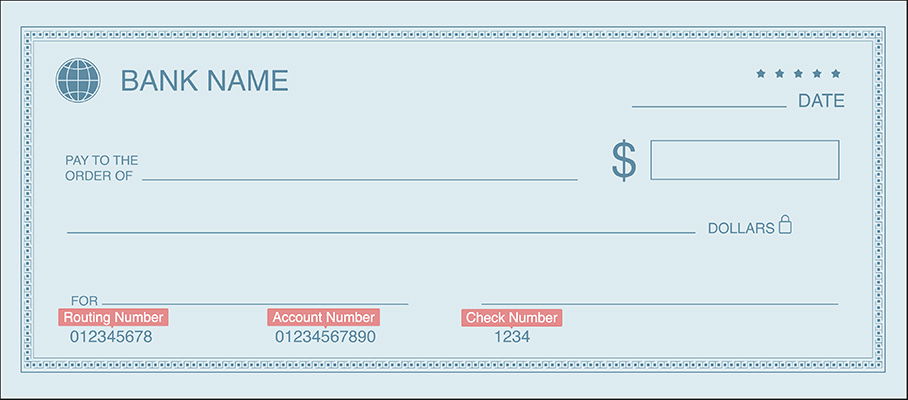A bank statement is a document that provides an account holder with a detailed record of all the transactions that have occurred in a bank account over a specific period of time.
It’s typically issued monthly or quarterly, and it can be accessed online or received in paper form. The statement includes information about account holders such as deposits, withdrawals, and any fees or charges that have been incurred.

Key Takeaways
- A bank statement provides a detailed record of all transactions in a bank account over a specific period, typically issued monthly or quarterly.
- Bank statements are useful for budgeting, fraud detection, and financial planning by allowing account holders to track spending, fees, and account balances.
- They can be accessed online, via mobile apps, or in paper form, and include information such as transaction history, fees incurred, interest accrued, and the statement period.
The Contents of a Bank Statement
A bank statement typically contains the following information related to a checking account:
- Account summary: The statement displays your name and address, the account number, and balance at the top.
- Transaction history: Detailed list of all transactions during the statement period, including deposits, withdrawals, transfers, etc. However, your bank statement may not include pending transactions.
- Fees incurred: A list of bank fees charged, including ATM fees, overdraft fees, and monthly maintenance charges.
- Interest accrued: Interest earned on the account during the statement period if it’s an interest-bearing account.
- Statement period: Start and end date of the statement period are specified.
Importance of Bank Statements for Budgeting
Bank statements serve as a valuable tool when it comes to creating and maintaining a budget. By examining your transaction history, you can gain insight into your spending habits and identify areas where you can cut back or adjust your expenditures.
When using your bank statement for budgeting, consider the following:
- Categorize your expenses: Group your bank account transactions into categories such as groceries, utilities, dining out, and entertainment. This will help you visualize where your money is going and make it easier to analyze your spending habits.
- Identify trends: Look for patterns in your spending, such as recurring expenses, seasonal variations, or impulse purchases. This can help you make more informed decisions about your financial habits and set realistic budget goals.
- Set spending limits: Based on your analysis of your expenditures, set limits for each category in your budget. Regularly review your bank statement to ensure you’re staying within these limits and make adjustments as necessary.
- Track your progress: Use your bank statements to monitor your progress towards your financial goals, such as saving for a vacation or paying off debt. This will help you stay motivated and accountable.
How can I use a bank statement?
A bank statement provides a comprehensive overview of your financial activity, serving as an important tool for managing your finances. By closely examining the details on the statement, you can ensure that all checking and debit card transactions recorded are accurate and legitimate. This helps protect you against potential fraud or unauthorized charges.
Furthermore, reviewing your bank statement regularly will help you identify any unnecessary or excessive fees. And this can help you make informed decisions to optimize your spending and ultimately improve your financial health.
How to Review a Bank Statement
To effectively review your bank statement, consider the following expert tips:
- Reconcile with records: Before diving into your statement, gather any relevant records such as checkbook registers or online transactions. Cross-reference these with the transactions listed on the statement for accuracy.
- Investigate unusual transactions: Reviewing your bank statements regularly will allow you to identify transactions you don’t recognize. These should be investigated. Contact your bank immediately to report any suspicious activity and protect your account.
- Verify fees & charges: Ensure all fees and charges on the statement are accurate and not duplicated. Report any discrepancies to your bank to resolve.
- Match balances: Ensure that your opening and closing balances match your records. Investigate any differences.
- Check for missing transactions: Ensure all transactions you remember making are listed on the statement. Inquire with your bank about any missing transactions.
- Review date range: Confirm the statement covers the correct time period and all transactions are included.
- Be mindful of small transactions: Scammers often use small transactions to test if a card is active, so watch out for these.
How to Get a Bank Statement
Here are some ways to get a bank statement from your financial institution:
- Online banking: Ditch the paper bank statement and go digital. Most banks offer electronic statements that can be viewed and downloaded through your online banking account. Simply log in and head to the “Statements” or “Account History” section to get your bank statement online.
- Mobile app: The convenience of mobile banking extends to accessing your bank statement. Log in to your mobile app, find the “Statements” or “Account History” section, and download.
- In-person: If you prefer paper bank statements, visit your bank branch and request a statement from a customer service representative. You may need to provide ID and there may be a fee for this service.
- By mail: Some banks send regular paper statements to their customers. Contact your bank to sign up and make sure your mailing address is up-to-date.
- Telephone banking: Request a statement through your bank’s customer service line. Follow the prompts to have it mailed or sent via email.
- Email request: Some banks accept statement requests via email. Simply send a request to the customer service department.
How often should you check your bank statements?
We recommend reviewing your bank account statement at least once a month. This habit ensures the accuracy of transactions and helps detect any potential fraud quickly. Regular monitoring of your bank statements is essential for securing and maintaining your financial well-being.
Keeping track of your spending and financial status is made easier through monthly statement reviews. Before making significant financial moves such as taking out a loan or making a big purchase, it’s smart to double-check your statement for sufficient funds and any errors. And don’t forget to report any unauthorized transactions to your bank promptly.
How long do banks keep my bank statements?
Banks must keep records of bank statements for up to five years under the Bank Security Act. Even if you’ve closed your account, the bank will retain your records. Statements may be needed for tax audits, loans, legal proceedings, or other purposes.
You can usually access recent bank statements online for free. However, banks may charge for older statements. Keep your account information safe by shredding any bank statements that are no longer needed.
Organizing and Storing Your Bank Statements
To keep track of your financial records and maintain a well-organized system, consider the following tips for storing your bank statements:
- Digital storage: Save electronic copies of your bank statements in a designated folder on your computer or a secure cloud storage service. Regularly back up your digital files to prevent data loss.
- Physical storage: If you prefer paper statements, organize them in a filing cabinet or a dedicated binder, sorted by date or account type. Store them in a secure location, such as a locked cabinet or a safe.
- Shred old statements: As mentioned earlier, shred any old bank statements you no longer need. This helps protect your personal information from identity theft or fraud.
Using Bank Statements for Financial Planning
Bank statements can be a valuable resource for long-term financial planning. By regularly reviewing your statements, you can gain a better understanding of your income, expenses, and financial trends. This information can help inform your financial goals and strategies.
Here are some ways to use your bank statements for financial planning:
- Establishing an emergency fund: Analyze your monthly expenses to determine how much money you need to set aside in an emergency fund. Aim to save enough to cover at least three to six months’ worth of living expenses.
- Retirement planning: Review your bank statements to assess your current savings rate and identify ways to increase your contributions to retirement accounts, such as 401(k)s or IRAs.
- Debt reduction: Use your bank statements to evaluate your current debt levels and develop a plan to pay off high-interest debt first. This can save you money on interest payments and improve your overall financial health.
- Saving for major purchases: Analyze your statements to determine how much you can realistically save each month towards a major purchase, such as a new car or a down payment on a house. Set a savings goal and track your progress over time.
- Investing: Evaluate your financial situation using your bank statements to determine how much you can afford to invest in stocks, bonds, or other assets. This can help you build wealth and achieve long-term financial goals.
Benefits of Regularly Reviewing Bank Statements
There are numerous benefits to regularly reviewing your bank statements, including:
- Improved financial awareness: Regularly reviewing your bank statements helps you stay informed about your financial situation and makes it easier to identify and address any issues that may arise.
- Better budget management: By analyzing your spending, you can create a more accurate budget and make adjustments as needed to stay on track with your financial goals.
- Fraud detection: Regularly reviewing your statements allows you to quickly identify unauthorized transactions and report them to your bank. This can minimize the financial impact of fraud and help protect your bank accounts.
- Fee management: Keeping an eye on your bank statements helps you identify any excessive or unnecessary fees, which can save you money in the long run.
- Improved credit score: Regularly reviewing your bank statements can help you identify and address any issues that may be negatively impacting your credit score, such as late payments or high credit utilization.
Conclusion
A bank statement is an essential document that provides a comprehensive overview of all transactions in your bank account. Reviewing it regularly can help you identify any discrepancies, accounting errors, or fraudulent activities.
Additionally, it allows you to keep track of your spending patterns, fees and charges, and make adjustments to better manage your finances. By staying organized, staying vigilant, and reviewing your statements regularly, you can maintain a strong financial foundation.



